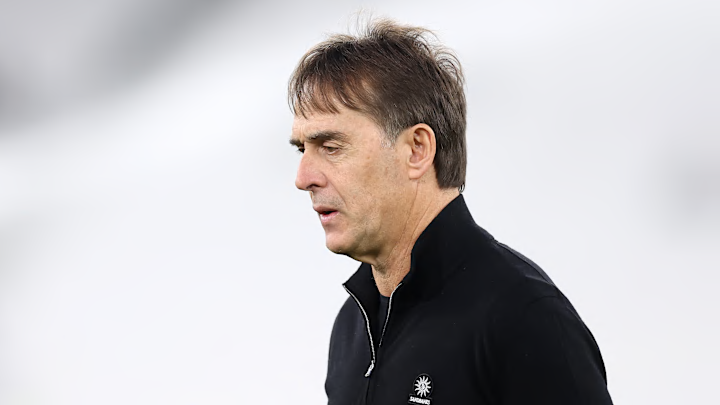Julen Lopetegui was one of the most sought-after coaches last summer, attracting interest from teams across the Premier League and other European leagues. After much speculation and negotiation, the highly regarded Spanish manager signed with West Ham United in the Premier League. He arrived at the helm of the Hammers following successful stints at Sevilla and Wolves.
What Went Wrong for Lopetegui at West Ham?
West Ham had just ended a memorable era under David Moyes, during which the club secured its first European trophy. However, despite this historic achievement, many fans had grown dissatisfied with Moyes’ style of play, often labeling it as "boring." They yearned for a more attacking brand of football, and the appointment of Lopetegui was met with optimism. Fans hoped his tactical acumen would usher in a new, exciting chapter for the club. Unfortunately, things did not unfold as anticipated.
Summer Signings and High Expectations
To support Lopetegui’s vision, West Ham made significant moves in the transfer market, bringing in players such as Max Kilman, Aaron Wan-Bissaka, Crysencio Summerville, and Niclas Füllkrug. These signings aimed to strengthen the squad and facilitate the implementation of Lopetegui’s playing philosophy. Expectations were high, but the reality on the pitch was starkly different. Results were inconsistent, and pressure on the manager grew with each passing week.
After 20 Premier League matches, West Ham found themselves in 14th place with 23 points, only seven points above the relegation zone. The team had managed just six wins, five draws, and suffered nine losses. This performance fell far short of the club’s preseason objective of securing European football for the following season. Instead, they were perilously close to a relegation battle.
Challenges and Setbacks
One of the major issues Lopetegui faced during his tenure was an ongoing injury crisis. Key players were sidelined at various points in the season, preventing the manager from working with a full-strength squad for extended periods. Additionally, the high-profile summer signings failed to make the immediate impact that was expected, leaving the team struggling to find consistency.
The Hammers’ performances oscillated between impressive and dismal, highlighting a lack of stability. Despite moments of brilliance, the team’s overall trajectory remained disappointing. Rumors of Lopetegui’s dismissal began circulating weeks before the eventual decision, but he managed to stave off the inevitable by securing crucial wins at critical moments. However, these temporary reprieves were not enough to silence the growing discontent.
The End of Lopetegui’s Tenure
Ultimately, the club decided to part ways with Lopetegui, replacing him with the experienced Graham Potter. This change has sparked debates among fans and analysts alike. Will Potter’s arrival mark a turning point, or are West Ham’s struggles rooted in deeper issues that go beyond the head coach?
Looking Ahead
The coming weeks will reveal whether the managerial change can salvage West Ham’s season. While Lopetegui’s time at the club did not go as planned, his challenges underscore the complexities of modern football management, where high expectations, injuries, and player integration can profoundly influence outcomes. For now, the Hammers must focus on stabilizing their campaign and ensuring they steer clear of the relegation zone while rebuilding for the future.
